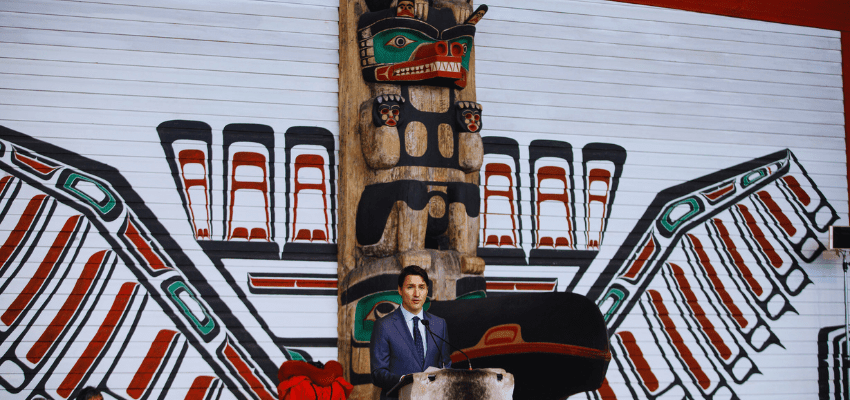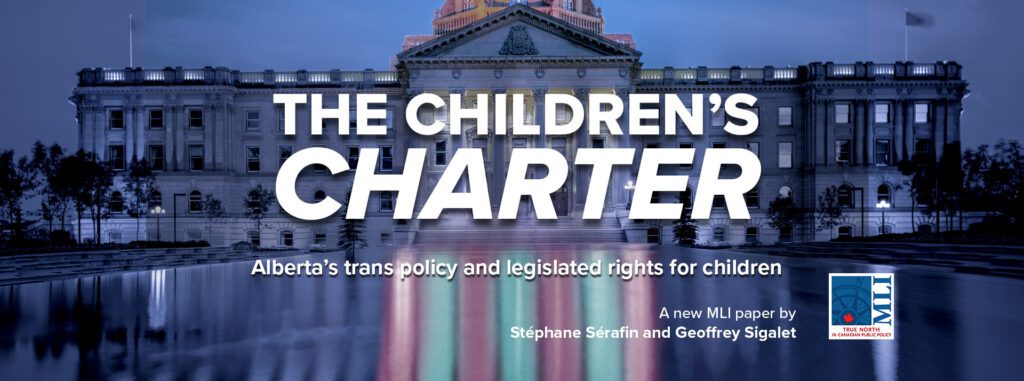By Justin Bourque, January 14, 2025
The announcement of Prime Minister Justin Trudeau’s resignation and the imminent general election signal a pivotal moment for Canada’s political, economic, and environmental trajectory. This transitional period brings both uncertainty and opportunity, particularly for Indigenous inclusion, climate action, and economic stability. Canada’s future state hinges on its ability to preserve hard-earned progress while charting a sustainable and inclusive path forward. This interplay offers both challenges and opportunities.
Indigenous participation and environmental performance
Indigenous communities have consistently emphasized their dual commitment to resource development and environmental protection. Recent years have demonstrated that Indigenous participation is not merely a social or moral imperative but a critical factor in getting projects done. Equity partnerships such as the Athabasca Indigenous Investments (AII) and Wapiscanis Weseskwan Nipiy (WWN) [author Justin Borque is AII’s founding president and an advisor to WWN] exemplify how Indigenous-led initiatives can align economic interests with strong environmental performance.
However, Indigenous leaders and communities have made it clear that their support for such projects is contingent on government and industry’s serious commitment to protecting lands and resources. The next government’s approach to Indigenous inclusion and environmental performance will determine whether the progress made in recent years continues or stalls. Indigenous values, rooted in respect for the land and long-term sustainability, demand more than symbolic gestures – they require enforceable policies and measurable outcomes. While initiatives like Alberta’s methane emission strategy showcase how environmental performance can improve despite increased development, the next government must reinforce and expand these efforts.
Programs such as the Alberta Indigenous Opportunities Corporation (AIOC) have facilitated meaningful partnerships, as should the Canada Indigenous Loan Guarantee Corporation just released for implementation nationally. But without predictable and credible environmental commitments from industry stakeholders, these partnerships risk losing their appeal.
Economic repair and environmental action: finding the balance
Canada’s economy faces significant challenges, including the need to restore investor confidence and revitalize industries impacted by global market dynamics and domestic regulatory uncertainty. The incoming government must craft a strategy that balances economic recovery with climate and Indigenous progress. The following considerations are key:
- Incentivizing sustainable development: Strong environmental performance can also attract investment. Certainty around industrial carbon pricing can help provide the economic justification to build lower emissions projects.
- Building on success: Alberta’s methane reduction initiative demonstrates that environmental performance need not hinder development. By replicating this model at a national level, the government can create a framework whereby sustainability drives innovation and growth.
- Don’t throw the baby out with the bath water: The next government must maintain humility and acknowledge that some progress has been made on a number of critical topics. Good programs should be maintained even if they were established under the previous government. However, they can be overlayed with a fresh lens that will enhance them and boost economic growth.
Challenges of polarization and the need for middle ground
Canada’s political landscape has become increasingly polarized, with the dominant parties often pursuing diametrically opposed platforms. This division risks undermining progress by prioritizing ideological differences over pragmatic solutions. Preserving the middle ground between Indigenous reconciliation, resource development, and environmental protection requires:
- Policy continuity: While change is inevitable, some areas of success, such as Indigenous equity partnerships and emissions intensity reduction, must be preserved and expanded.
- Collaborative governance: Engaging Indigenous leaders, pragmatic environmental experts, and industry representatives in policy development ensures that diverse perspectives inform decisions.
- Predictable policy frameworks: Sound and predictable policies foster investor confidence, enabling long-term planning and investment in responsible development.
The role of Indigenous leadership in economic growth
Indigenous participation is increasingly recognized as critical to the success of resource projects. More proponents now understand the necessity of Indigenous support to secure social licence, thus ensuring smoother regulatory processes. However, this participation hinges on government and industry’s ability to demonstrate a steadfast commitment to environmental stewardship and reconciliation.
The next government must acknowledge that Indigenous communities will not accept partnerships that compromise their values or the environment. Indigenous leadership, grounded in traditional knowledge and a deep connection to the land, offers a blueprint for balancing economic growth with sustainability.
Loan guarantee programs, while beneficial, are not a panacea. Indigenous groups seek partnerships that respect their knowledge and prioritize sustainability. The next government must view Indigenous inclusion not as a checkbox but as a cornerstone of its strategy for economic growth and reconciliation.
Weaving the components together
The next government’s approach to resource development, environmental protection, and Indigenous inclusion will define Canada’s future state. This requires a holistic strategy that intertwines policy, stewardship, Indigenous leadership, and economic revitalization. Indigenous participation is contingent on credible commitments to sustainable development and reconciliation. A government that focuses solely on economic factors will falter in today’s interconnected society, just as corporations that ignore stakeholder interests risk losing shareholder value.
By fostering collaboration, incentivizing sustainable practices, and building on successful models, the next government can achieve the growth in resource development that it seeks, with Indigenous engagement at the forefront. The secret sauce lies in striking the right balance, ensuring that economic growth, environmental health, and Indigenous prosperity go hand in hand.
Justin Bourque is a senior fellow at the Macdonald-Laurier Institute.







